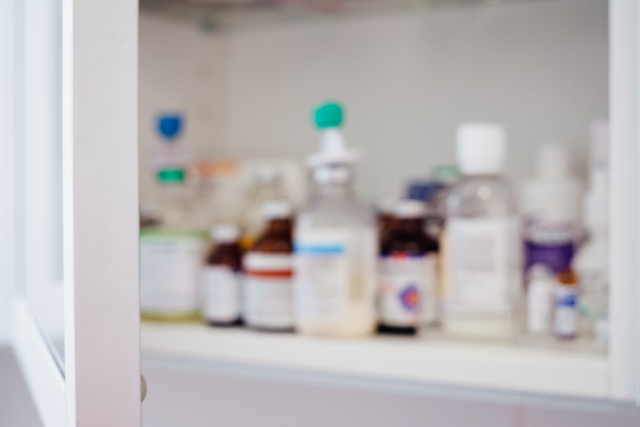Introduction
If you decide to conduct an investigation on your own, to determine the number and types of acne there are today, you’ll be surprised to find that there are indeed many types of acne in the world today. You will also find that there are numerous types of medications available that can be used to combat acne breakouts. So the battle is still being waged between science and acne but casting that aside for a moment, is there any way an ordinary person can contribute to prevent the spread of acne?
It’s completely unrealistic to think that acne will simply disappear any time soon. Just look around and see how many diseases are still with us after so many years.
However, the good news is that as an individual you can add more verve into the battle by practicing certain new ideas that have developed over the years that you can use to manage you own fight against acne breakouts.
But before doing your own thing to help prevent you from getting acne breakouts, you should familiarize yourself with the enemy and find out everything you should know about acne before making any advances.
The different types of acne
For a start you should know that stress can act as a trigger mechanism that can get acne to start up in no time at all. You should know that acne pimples are of different size, color and pain levels.
You will also find that there are many different types of acne as listed below:
- Whiteheads – these are found to remain under the skin and are small in size.
- Blackheads – these type of acne are conspicuous and are clearly visible, they are of the color black as the name connotes and of course they appear clearly on the surface of the your skin.
- Papules – these are small and usually pink in color and appear as bumps, like the blackheads they appear clearly on the surface of your skin.
- Pustules – again, these are clearly visible on the surface of the skin and are essentially red of color especially at the base with pus located in the top part of the acne.
- Nodules – these are also visible on the surface of your skin, are large, firm and painful pimples which firmly plant themselves deep down in the skin.
- Cysts – again these are also visible on the surface of the skin, they are very painful and filled with pus and have the propensity to cause ugly scars wherever they occur on the body.
Tips for managing and preventing acne
The list below will provide you with essential techniques for taking care of your skin that may be harboring acne or is susceptible to it. For best results, read them carefully and put them into practice,
- First on the list is that you should wash your face no more than twice a day with warm water with mild soap especially made for acne,
- You should avoid squeezing and popping your pimples because this action can make scarring more likely occurrence and you definitely don’t want that.
- If you need a pimple to be speedily removed from your face (or anywhere else) by a qualified specialist if you need to apply cosmetics.
- At no time should you be touching your face.
- When you’re making or receiving a call or conversing on the phone, you should hold the telephone away from your face while you’re speaking with the other party. Your phone may have sebum and skin residue on it.
- You should frequently wash your hands, especially right before you apply makeup, lotions or creams.
- Make sure you also regularly clean your reading glasses as they may have collected sebum and skin residue.
- If you have acne on your back, chest or shoulders, you should try and wear loose clothing to permit the skin to breathe in some air. You should avoid wearing tight garments such as scarves, headbands, and caps or if you do, at least wash them regularly when using them.
- For your makeup you should use skin sensitive products while avoiding oil-based products. Remember to remove your makeup before going to sleep for the night,
- When shaving, you should use an electric shaver or sharp razors but before you actually shave, soften the skin and beard with warm water that’s been mixed with soap and then apply the shaving cream.
- You should always keep your hair clean as it may collect sebum and skin residue during the day (and night). You should also refrain from using greasy hair like products that contain cocoa butter.
- You should avoid excessive exposure under the sun, as it can stimulate the skin to produce more sebum. Also, there are several acne medications that can exacerbate the risk of sunburn.
- Stay clear of anxiety and stress, as they can increase the production of cortisol and adrenaline, which can aggravate your acne condition.
- Always try and keep yourself cool and dry when you’re living in a hot humid climate. This will prevent you from sweating
We all know that acne is a common problem which can cause severe embarrassment. Fortunately medication is available to deal with it and in most cases they succeed in doing their job.

Things that aggravate your acne
If, you’ve been treating your acne with appropriate care, but you find that new breakouts are still happening, it may be your skin care routine that’s causing it.
For your benefit, 10 skin care routines that can aggravate your acne have been provided below together with tips from dermatologists to help you change them to get better results are given below:
- Every week, try a new acne treatment and see the result – Over washing your face can irritate your skin and cause acne breakouts.
Do this instead: be patient and use a product for 6 to 8 weeks and look for improvements. If no improvements occur try another product. It takes 3 to 4 months to completely clear your acne.
- Use acne medication only on your blemishes – this is usually done but it doesn’t prevent new breakouts.
Do this instead: evenly spread acne medication over all blemished areas, for instance, you forehead, nose or chin
- Using makeup, skin and hair care products– Some makeup, skin and hair care products are oily and can cause acne breakouts. Continued use means continued blemishes so don’t use them.
Do this instead: Use “non-comedogenic” or “won’t clog pores.” as they don’t acne breakouts in most people.
- Sharing makeup, brushes or applicators – sharing these items can cause acne blemishes while acne itself is not contagious. When you share them, bacteria, oil and dead skin cells of other people may fall on your makeup and the acne causing bacteria, oil and dead skin oil can clog up you pores and you get acne breakouts.
Do this instead: Make sure only you can access and use your makeup materials and tools
- Don’t sleep with your makeup on – any type of makeup can cause acne outbreaks if you don’t clean it off before you go to sleep.
Do this instead: clean you off your face before going to bed, period! Use a small non-comedogenic towel if you’re too tired to wash your face.
- Avoid washing your face too many times during the day – washing you face too many times daily can irritate the skin and lead to more acne breakouts.
Do this instead: Wash your face only twice daily when you wake up and before going to bed. If you work and sweat during the day, you’ll need to wash the sweat off so may need to wash your face a third time.
- Drying your skin – it’s true that oily skin is fertile ground for acne breakouts and you’re tempted to use pore closing (astringent) and other acne treatments to dry your skin. Don’t do it! Irritable or irritated dry skin can increase the risk of more acne.
Do this instead: – If you skin is dry, use a moisturizer on your acne-prone skin twice daily after washing your face. Avoid using astringents or rubbing alcohol or other substances that can dry out a skin.
- Scrub and clean your skin – You may feel you should scrub you skin clean to make your acne disappear. Don’t do it! Scrubbing irritates the skin inviting more acnes to flare up.
Do this instead: gently wash your face and other areas of your skin affected with acne. Use a mild, non-comedogenic cleanser gently applying it with your fingertips in a circular motion. Rinse the towel off gently in warm water using your fingers only. Pat your skin dry with a clean towel.
- Rubbing sweat off your skin during workouts – When you rub sweat away in a rough manner, you will irritate your skin, which cab result in acne breakouts.
Do this instead: use a clean towel during your workout routines and gently pat sweat from your skin.
- Squeezing or popping acne – when you pop or squeeze acne, you force what’s inside the acne deeper into your skin. This increases inflammation and can lead to more acne, pain and possibly scarring.
Do this instead: Don’t fall in the temptation and start popping or squeezing your acne. Your acne should be treated with acne medication. If your acne is painful, visit a dermatologist.

Conclusion
Providing timely and effective solutions to real life situations especially for a very irritating and uncomfortable condition such as being infected with acne and acne breakouts is a commendable task. Indeed the dermatologists who have provided the appropriate actions that should be taken for the 10 different real life situations mentioned have done a great job. There are many who don’t know anything about them and they are sure to benefit from the voluntary disclosures. This source has provided us with effective acne treatments in the past, and we have no hesitation in recommending them.









